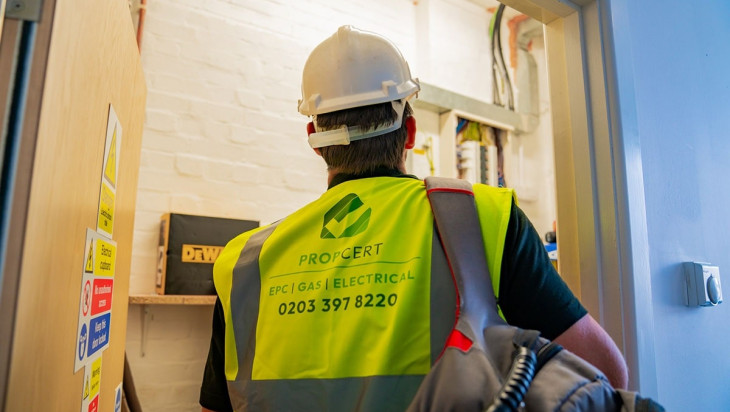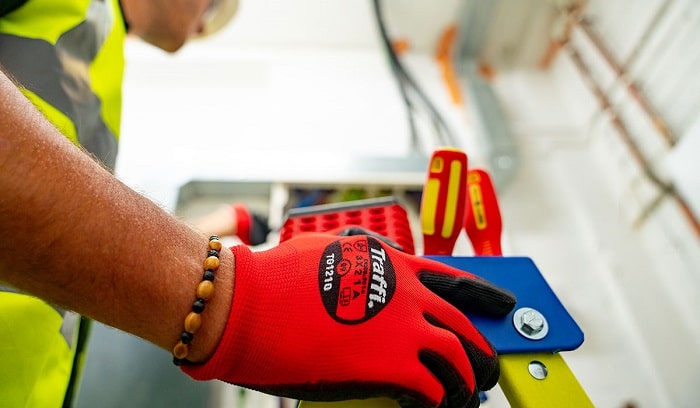
Earth bonding is also known as equipotential bonding. It is a procedure in which gas pipes are connected to the property's main electrical earthing system. It means it is a process that ensures all the metal pipework on the property is at the same electrical potential. The bonding then helps reduce the risk of electrical shock in the event of a fault. Earth bonding is a legal requirement in the UK under the IET Wiring Regulations BS 7671. It is also an important safety precaution.
It is seen that most homeowners do not know its importance or the hazards of not having it. They come to know when any electrical or gas engineer comes for inspection and points out its absence. In its absence, a single fault can expose the pipework to dangerous conditions.
In this blog, you will learn about earth bonding, its requirements and costs in the UK, and the factors driving its price increases. Earth bonding is a significant process for the safety of any property.
It is the connection of the metallic parts of a property, including water and gas pipes, to the property's central earthing system. It does not indicate that electricity flows through the pipes during regular use. But it provides a safe path to earth in case a damaged electrical cable comes into contact with the gas pipe.
The primary purpose is to ensure the same electrical potential across all metallic pipes installed on a property. If there is no earth bonding, a severe electrical shock can occur if any faulty appliance or cable comes into contact with the gas pipe. In the case of proper earth bonding, current travels to earth through the bonding and immediately trips the circuit breaker or fuse.
The wiring used for earth bonding in the UK is 10 mm² in diameter, with a specific color of green and yellow, and is a copper conductor. This wiring is clamped to the gas pipe near the gas meter. It is not something you can install yourself, as it can be dangerous. Always contact a qualified engineer to do this work so they can comply with BS 7671:2018 IET Wiring Regulations. It is essential for the safety of your home and the people around you so that there can be no electrical hazards.
It is a legal requirement in the UK, so there is no way out. It comes under Part P of the Building Regulations. It is a serious matter that can risk lives, thus everyone is mandated to follow the regulations. The gas meters are usually near the wiring, which means a minimum fault can lead to a dangerous situation as the current can flow along the pipe.
A person can face a severe electric shock if they touch the pipe while having contact with a conducting surface. These are the scenarios in which bonding comes into effect: the fuse or circuit breaker will trip immediately, preventing a dangerous situation. It is required to comply with the regulations as well. There is a routine checkup of earth bonding when you apply for Gas Safety Certificates, as well as during Electrical Installation Condition Reports.
The gas engineers, property inspectors, and NICEIC electricians thoroughly check for bonding during inspection visits. The inspection fails if the bonding is not done adequately or incompletely, as it is a critical criterion for property landlords to fulfill. Modern homes have mostly plastic pipework installed, but the entrance section has metallic parts that require earth bonding. If you do not fulfill this requirement, the insurance of your property can be invalidated as well, and you compromise the safety of your home.

A combination of materials is used for earth bonding under the guidance of professional engineers. The engineers are trained in this matter; thus, they make sure each regulation is complied with. Some main components are as follows:
It is critical to use the correct materials and to be precise about the installation techniques. Any loose end can lead to inspection failure and a safety risk.
The cost of earth-bonding a gas meter in the UK can vary significantly depending on several factors. Understanding these will help homeowners and landlords budget effectively and avoid unexpected expenses:
Many factors contribute to deciding the cost of earth bonding in the UK. The main factors include the property's location, type, and complexity. The average range is £150-£250. This is the rate of standard installation, in includes certification, materials, and professional labor. If the bonding is required for a small flat where meter access is easy, then it can cost around £75 to £120. These are time-consuming jobs, thus costing less.
The cost for a complex property structure where the meter is not easily accessible then the cost is around £300 and £400. Drilling, long cable runs, trunking, and any required upgrades influence the cost. Prices can also vary by region, with Central London having higher rates than Northern England. Sometimes, there are offers in which you can get both water and gas bonding at a discounted price.
What is the most suitable place for the installation of earth Bonding?
Ans: The most suitable point to install earth bonding is the main entrance point of the pipework. The best is to install it within 600mm of radius.
How can I know whether the earth bonding is required for my property or not?
Ans: It is a legal requirement; thus, it is important to consult a professional certified engineer so that they can inspect your property and let you know about the requirement.
What is the general cost of the earth bonding installation?
Ans: It ranges from £75 to £400 depending upon the location, region, labor required, and type of property.
Earth bonding is a crucial preventive measure for your home's safety. Other than safety, it is a legal requirement in the UK to comply with BS 7671 regulations, which state that earth bonding is essential to ensure that insurance and inspection of the property remain valid. The cost ranges from £75 to £400, as it depends on multiple factors, as discussed. Professionals should be hired rather than trying to do it themselves, as it is a risky job. Make sure to schedule regular inspections to avoid dangerous situations and to ensure compliance with legal requirements.
Fill the required information to order a gas safety certificate instantly.
Are you curious about your Gas Safety Certificate? With these simple steps, learn how to check its status and ensure your peace of mind.
Find out why your boiler is vibrating loudly. Explore causes, troubleshooting tips, and the importance of prompt repairs for a quiet and efficient heating system at home.
Gas engineers perform a gas safety check to ensure your gas appliances are safe. Read to learn what more you can expect from the gas safety check.
Learn about the importance of gas safety certificates for landlords and the legal consequences of not having a valid certificate.
Know your tenant rights: How long can a UK landlord leave you without hot water? Stay informed, assert your rights.
Every landlord in the UK is legally bound to follow gas safety regulations as per the Gas Safety (Installations and Use) Regulations 1998.
Fill out the following enquiry form and we will contact you as soon as possible.